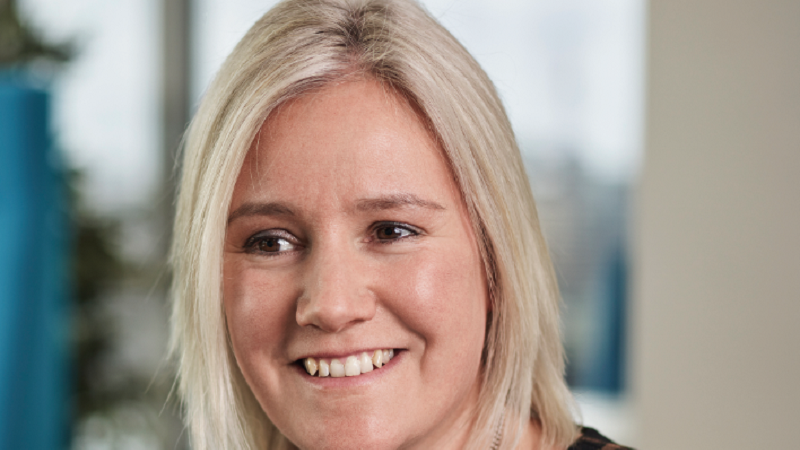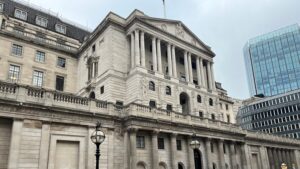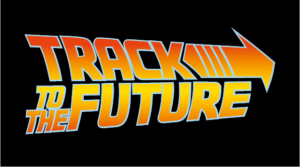Speaking to Judith MacKenzie four weeks into lockdown, the fund manager and head of Downing Fund Managers describes herself as being “absolutely shattered”.
As if staying on top of running a nine-strong investment team and managing the MI Downing UK Micro-Cap Growth Fund and Downing Strategic Micro-Cap Investment Trust were not enough, in March and April the group went through the process of rebranding and adding two fund managers to its stable as part of the launch of a new ‘boutique’ funds strategy.
Following the recent arrivals of Rosemary Banyard and Anthony Eaton to manage the VT Downing Unique Opportunities and Global Investors funds, respectively, the number of mandates run by Downing Fund Managers has jumped to eight. The recruits are part of a new strategy that sees the firm move away from its roots managing small and micro-cap mandates, to one that looks to provide a partnership and grow those funds that often get overlooked by the larger houses.
Communicating such changes to the market can be difficult at the best of times, but locked indoors and with access to only video meetings, MacKenzie admits we are living “in the strangest of times”.
“From a fund management perspective, I have managed to do more portfolio management in one week at home than I have ever managed to achieve before,” she freely admits. “But the end result is that you wind up knackered at the end of the day – though it is productive.”
See also: Helena Morrissey calls for lockdown shake-up of investment workplaces
Downing questions office arrangements in the face of Covid-19
MacKenzie joined Downing in October 2009, and shortly after established Downing Public Equity, to be responsible for the management of all the firm’s listed assets. She says the name change to Downing Fund Managers describes more accurately what the team actually does. So how are they responding to the challenges of working from home?
“Through legacy probably more than half of the team have worked from home at some point during the week anyway, so pre-lockdown we made sure we all got together in the office for at least two days every couple of weeks to stop people feeling too isolated,” she says.
For MacKenzie, the unexpected challenge that has come from the forced isolation of working from home is replacing this form of human contact with an online ‘virtual’ setting.
“People are herd creatures and want to be part of the pack; you cannot just isolate someone and get them to work,” she says. “In the first week of lockdown we were using Microsoft Teams but just doing it through voice calls. The feedback quickly came in that people wanted to see each other to socially engage. This is something we have since stepped up, and there is now more communication between us as a team than there has ever been.”
Indeed, MacKenzie is of the view that the way fund managers will work post-crisis will never be the same again.
“We have an office in London that caters for 150 people, and within four or five hours we made the decision to shut it and everyone has worked from home since,” she says. “The question we have to ask is, does everyone really need a desk? I think we still need an office, as it is important to have a central focal point, but at the same time I think flexible working, hot-desking and learning to trust that people’s productivity can be good, will facilitate more remote working.”
Discussing the biggest day-to-day challenges in managing her funds, MacKenzie says having calls with the management teams she is already invested in, and has a relationship with, is fine, but having first time meetings with prospective companies is harder using video platforms such as Zoom or Skype.
“This is the side of fund management where I would argue things have probably gone down some 50% in terms of quality,” she says. “You get a bit of flavour from video calls but it’s not the same as going out on site and really kicking the tyres.”
See also: UK funds industry slowly dials up exposure to the Zoom explosion
We were lucky to have high cash levels going into the market volatility
With more than 20 years’ investment experience under her belt, MacKenzie has seen pretty much every investment cycle. She admits the scale of the effect Covid-19 has had on markets is the biggest challenge of her career to date, however.
“We have never lived through anything like this before and I hope we never have to again,” she says. “The word ‘unprecedented’ has been well overused but I have never been in a position before where we literally do not know what the scenario planning is.
“Through luck rather than judgement, coming into the crisis we had taken cash levels in our small and micro-cap mandates up to quite high levels, so we were well prepared for Covid-19, even though we didn’t know it was going to happen.”
According to FE Fundinfo data as at 23 April, the £8.6m Downing UK Micro-cap Growth Fund delivered a total return of -40.6%, -23.1% and 50.6% over three, five and 10 years, respectively, compared with the Numis Smaller Companies plus Aim (ex-investment companies) index’s -18.1%, 2.67% and 71.64%.
The Downing Strategic Micro-Cap Investment Trust, launched in May 2017, has returned -31.4% over the past year compared with -18.2% for the IT UK Smaller Companies sector. With regard to the investment trust, MacKenzie describes micro-cap investing as “frustrating and uncomfortably volatile at times” with share prices often driven by sentiment rather than fundamentals.
“Over recent years, our value approach has been out of favour and the protracted Brexit negotiations were unhelpful for all UK assets, particularly small caps,” she says.
“Our performance is predominantly related to the underlying operational performance of our investments and we have spent over 18 months putting in place strategic initiatives which should help a number of our investments’ share prices begin to reflect what we believe is closer to their intrinsic value.”
One of the side-effects of the recent market movements, she says, is that it has forced her to be more decisive in her decision making when it comes to what to buy and hold within her portfolios. Given the lack of being able to invest with a full picture, she says in today’s environment, it is all about getting as much of the picture she can and investing accordingly.
“We have been doing more trading in the past two months than we have done through the whole year,” she says. “This market has made us sharper, more pro-active investors, and we are adopting a zero-tolerance attitude. You might think people would be sitting on their hands but, given the opportunities out there, we need to be in a position to act on them – and that is what we have been doing.”
A great time for Rosemary Banyard to launch a UK equity fund
Indeed, MacKenzie says now is a great time to be launching a UK equity fund for new recruit Banyard. The VT Downing Unique Opportunities Fund, launched at the end of March, is both less constrained and invests slightly up the market curve to what the group already manages, and MacKenzie says bringing on someone of Banyard’s calibre was “a real coup”.
“She is a fund manager who has been in the industry for nearly 30 years, during which time she has established an excellent track record, most of which was during her time at Schroders. Taking a two- to three-year view, it is a fantastic time for her to start investing, so our timing with this launch has been impeccable.”
Despite the current levels of disarray in markets and what various economies might be doing, MacKenzie says she has been pleasantly surprised by the level of reaction to the hires by the asset management community.
“We have had some of the real big boys, who would never tap on our door normally, phone us up to arrange meetings,” she says. “Anthony’s appointment marks a significant step in the managed growth of our quoted fund management business. We believe this fund will have wide appeal. As an asset class, global equities provide unlimited opportunities to identify investment prospects at attractive valuations that have the potential to grow investors’ capital over the long term.”
See also: Rosemary Banyard resurfaces at Downing to launch multi-cap fund
‘We are not scared of kissing the frogs’
What can we expect of Downing in the years ahead and what, in MacKenzie’s eyes, marks the firm out as genuinely different to its peers?
Having taken 10 years to grow the business to its current level, with assets under management currently standing around £185m across all the mandates, she says it is clear the firm is not in the business of being frenetic asset gatherers. As a result, rather than embark on a mission of adding lots of new managers quickly, she says the goal right now is to “stick to our knitting”.
“At the moment our plan is to consolidate what we have, and then in the future look at the possibility of adding other managers and mandates,” she says. “The two new managers we have taken on have been in dialogue with us for more than a year in one case and nearly a year in the other. We prefer to take our time when courting any new manager.
“We are not scared of kissing the frogs or turning them down. We are going to be very picky, as we want the managers that join to be of the same calibre as Rosemary and Anthony. We are not going to compromise. The key is that we are going to build this carefully, as we want to grow the business for the next few decades, not just the next five years.”
As an investment house, Downing Fund Managers prides itself on being value-led investors, with the fund managers very much adopting a private equity-style approach to investing. But what of the culture behind that, how would MacKenzie describe Downing as a place to work?
“I think it’s quite entrepreneurial,” she says. “You can get an idea and build a business plan around it. People can challenge ideas but, ultimately, we are all backing each other.
“The word collegiate is something of a cliché but we are a group of people that are all capable of getting on with each other without agenda and without politics, and that is what I love about it. When you do get challenged, it’s sensible, fair and measured, which means we ultimately come out making the right decisions.”
She adds: “It’s a friendly place to be, with friendly folk you want to go out for a beer with, which I think makes the working day a lot easier.”







